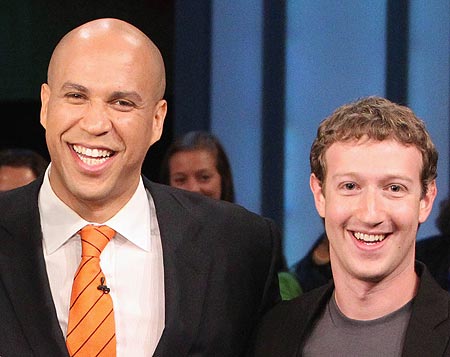Why Did Corporate Reformers Overlook Newark's Children and Families?
Posted: Updated:


As the climax approached in Dale Russakoff's compelling New Yorker article,"Schooled," a Newark mother asked the key question of Superintendent Cami Anderson, "Did you think this through with our children in mind?" The mother then questioned Anderson's motives. After all, corporate school reformers energetically set out to demolish the city's schools but they had not adequately planned a way to replace them.
Any jackass can kick down a barn, but it takes a carpenter to build one. As incomprehensible as it seems, Newark proved to be one more example of technocrats who have strong feelings about what a school system should look like, but who have little idea about why inner city schools work the way they do. Reformers have long proclaimed their intent to bulldoze the education "status quo" so "disruptive innovation" would magically release "transformative change." But they are clueless about what it would take to build a barn, must less an urban school system.
Russakoff's excellent account of the implementation of the "One Newark" reform is a case study of what happens when sincere outsiders, with little or no knowledge of teaching and learning, try to implement their ideals. Sure enough, the mother had a right to be suspicious. If elites were redesigning schools for their own children, they would have done more than spout off the conventional spin that was drafted by their high-dollar publicity agents and consultants. But, when experimenting on other people's children, Newark's market-driven reformers played it by ear and ramrodded their agendas before other stakeholders could realize what was being imposed.
Cami Anderson exemplifies the essence of accountability-driven school reformers. She taught just long enough to add support for the maxim of "a little knowledge is a dangerous thing." Anderson, as well as former mayor Cory Booker, Governor Chris Christie, and Facebook founder Mark Zuckerberg, sincerely believe that they lead a righteous crusade. Zuckerberg did not claim knowledge of the inner city, but Booker, Christie, and Anderson clearly were less concerned about battling the educational effects of poverty than defeating teachers and other special interests who supposedly won't do "the right thing."
Russakoff vividly recalls the story of how Booker and Christie recruited Zuckerberg and other "venture philanthropists," who sought to recreate Newark schools in their preferred image. They leaped before they looked and, believe it or not, they didn't even hire a superintendent until they were a year into the rushed process. So, by the time they hired Anderson, her job was playing "sixteen-dimensional chess." She had to Why Did Corporate Reformers Overlook Newark's Children and Families? | John Thompson:
